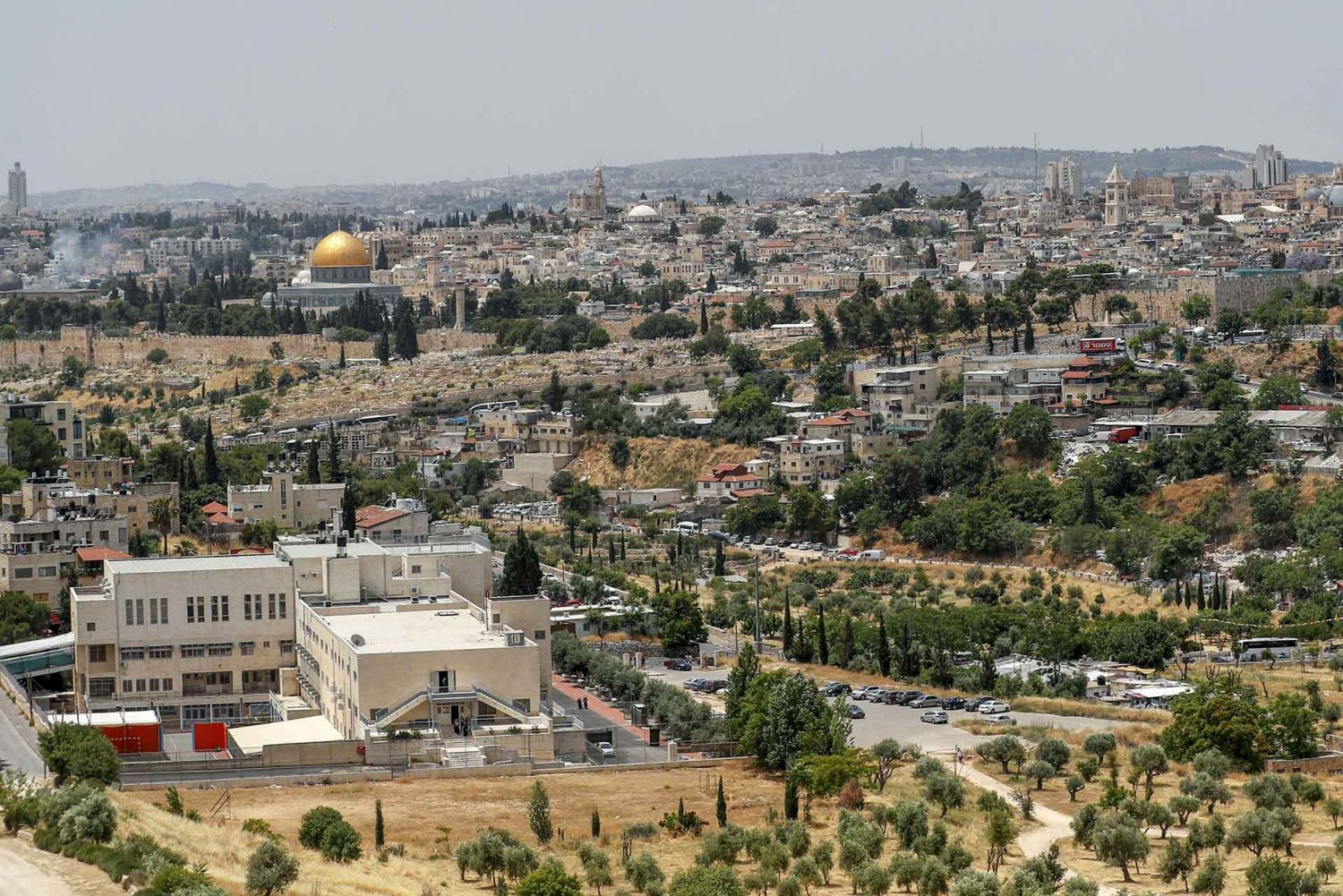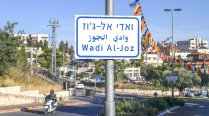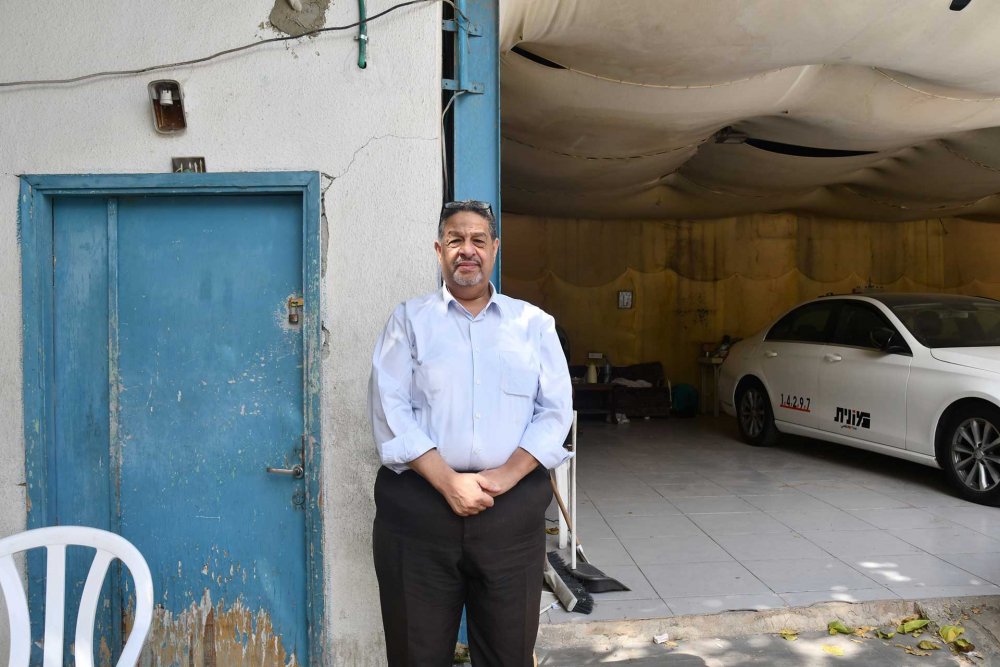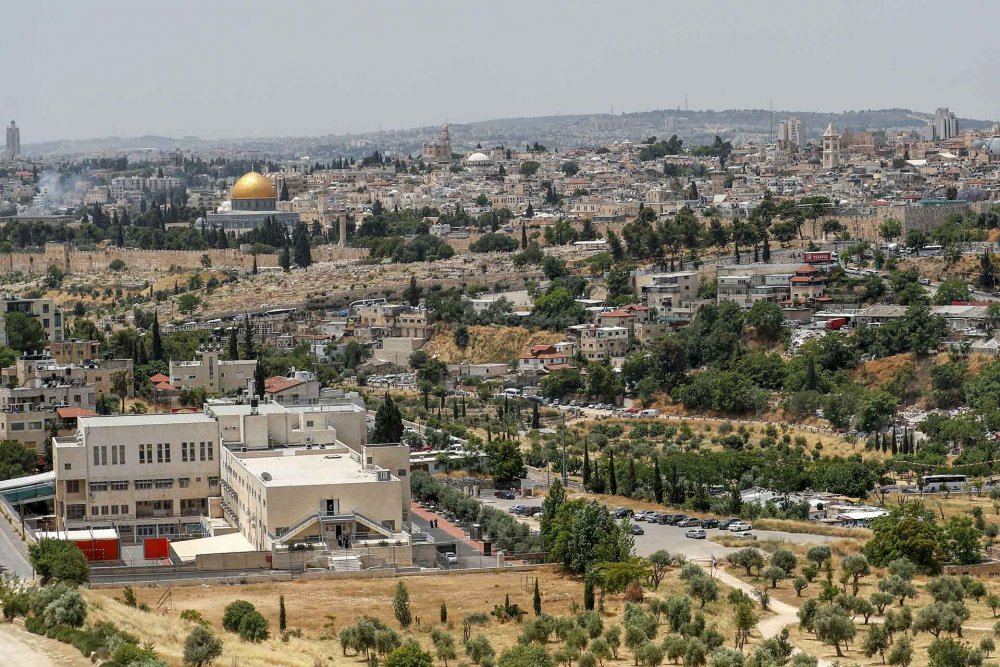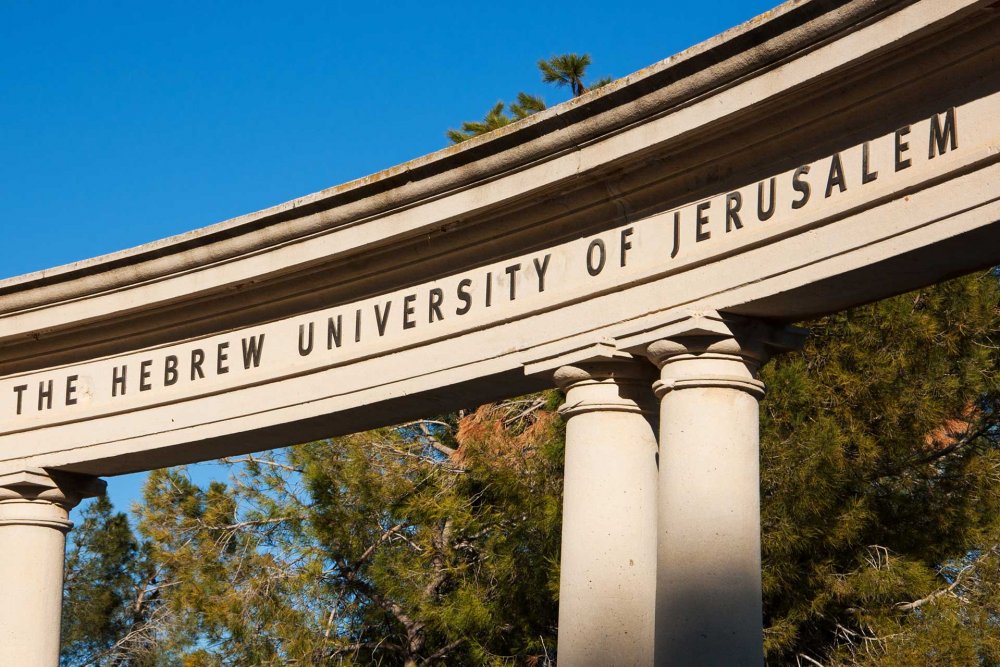This demolition order is only one of nearly a hundred notices distributed to Wadi al-Joz residents,2 which locals, lawyers, and activist groups say is to build a tech hub known as “Silicon Wadi” atop the neighborhood’s ruins (“wadi” is Arabic for “valley”).
The Silicon Wadi project will be situated along the Wadi al-Joz road and Othman bin Affan Street.
The municipality announced Silicon Wadi on June 3, 2020.3 The plan, which falls within the much larger “East Jerusalem City Center Plan,”4 calls for building 8 to 14-story-high commercial structures and hotels on approximately 14 acres of land.5 It includes the construction of 200,000 square meters of high-tech office and workspaces at an investment of NIS 200 million ($56 million). An additional 50,000 square meters would be taken by new hotels, and 50,000 by commercial space. The finished complex would be twice the size of Grand Central Station in New York.6
However, it will also entail demolishing an entire industrial zone for Palestinian businesses that was established in the 1950s, before Israel occupied East Jerusalem.
While the city has touted this massive project as creating opportunities for local Palestinian workers, the community is highly skeptical and believes the project will benefit primarily or solely Israeli Jewish business interests, while allowing for the elimination of the only Palestinian industrial zone in East Jerusalem.7 Many of the 160 to 180 Palestinian business owners there are second- and third-generation owners whose families have been there as far back as 1957. Most of the area is dedicated to car dealerships and auto repair shops.
In an interview in 2020, Kamal Obeidat, the chairman of the board of the Arab Chamber of Commerce, told Middle East Eye that the Chamber sees the project as a means of Judaization, since Israeli companies would own and manage the companies being based there.8
To implement this project, the municipality is aiming to widen the main street of Wadi al-Joz. The project also calls for converting 13 streets into pedestrian-only throughfares,9 which could be devastating for those who live in or near the area.
In January 2024, the Jerusalem Municipality approved construction to begin for Silicon Wadi.10
Palestinian attorney Muhannad Jabara filed a petition on behalf of Wadi al-Joz business owners against the project. In September 2024, the Jerusalem District Court rejected the appeal, and now Wadi al-Joz tenants and business owners are planning to file an appeal with the Israeli Supreme Court over the matter. A portion of the demolition orders—including Kirresh’s—are currently frozen because of the appeal. However, the municipality has, thus far, demolished five structures,11 since the recipients of these demolition orders didn’t seek legal assistance.
Jabara explained that according to Israeli law, the municipality can request the judicial authorities to issue demolition orders for legal buildings if it’s in the public’s benefit. In this case, widening Wadi al-Joz’s main street is considered a public need.
Silicon Wadi is a product of Israeli Government Decision 3790, a five-year plan seeking to reduce socioeconomic gaps in East Jerusalem and boost economic development. However, the initiative has been criticized for manipulating policies to advance state and settler interests at the expense of Palestinians.
“It’s good on paper,” Jabara told Jerusalem Story.12 “And to show the world that [Israel] wants . . . to invest in East Jerusalem, but actually it’s not.”
During the initial stages of the Silicon Wadi plan, the Jerusalem Municipality released a promotional video for the project—emphasizing Wadi al-Joz’s importance as an entrance into East Jerusalem.13 This, Kirresh says, is the main motive behind Silicon Wadi.
“[Israel] wants to reconnect West Jerusalem with East Jerusalem,” Kirresh said. “The street now is going to Sheikh Jarrah and from there to West Jerusalem. So, they want to rebuild the streets so they can connect it to the Western Wall.”

